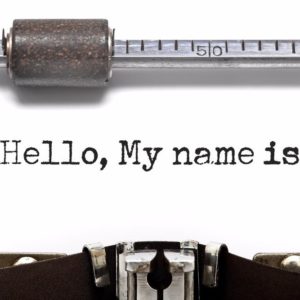

8 Phrases That Sabotage Your Credibility
I love my job. Know why? Because I get to tell people what everyone else is thinking, but are too polite to mention…and am paid for it!
It’s not that I get a kick out of being rude (I’m certainly polite in how I tell them). It’s because part of my job is to help people understand how others are picking up clues to their personal brand – and in particular, where they might be inadvertently sabotaging it.
I’ll draw their attention to something they’re doing – maybe an aspect of how they look, how they act or how they talk – and get them to think about what it might portray.
Here’s what I’m talking about…
A woman arrived at my workshop in plenty of time, something which created a great first impression, as I really value people who value others’ time.
As she walked into the room she said, “Sorry, am I all right to come in?” I told her she was.
We shook hands and she introduced herself, then said, “Sorry, is it OK if I sit here?” I said it was.
After a couple of minutes, she said, “Sorry, can I just go and grab a drink?” I said she could.
When she returned and we chatted about this and that, a few more apologies appeared.
In the end I had to say, “What are you apologising for?” Because every time that word popped out of her mouth, it chipped away at that great first impression I’d formed.
So why did she do it?
A lot of it was habit – she said it so often it had become part of her brain’s flow of vocabulary.
Some of it was feeling nervous – about who else would be in the room and what we’d be doing.
Part of it was down to our culture of courtesy – saying sorry for things that aren’t even our fault.
It’s not just “Sorry” that’s the problem
According to a blog post by Melody Wilding, a coach who helps high-achieving people to be successful, there are seven other phrases you want to banish from your vocabulary (or at least use sparingly) in order to keep your credibility intact.
1. Just
Melody says it ‘minimises the power of your statements and can make you seem defensive or apologetic’. One example I’ve heard a lot is people on the phone who announce, “It’s just me”.
2. I’m no expert but…
Often used to avoid seeming arrogant, Melody says, ‘Suggesting you may be wrong before even giving your opinion can make your statement seem less credible.’ There’s no need because, as I’ve learnt from experience, being a non-expert can be exactly the reason you’re adding value, by giving an alternative view.
3. What if we tried?…
This is often used in an effort to remain collaborative, but as Melody says, ‘Masking your opinions as questions invites rebuttal and can lead to you feel criticised.’ I think this is less of a problem than the other phrases, but I agree it’s not as strong as simply stating the case.
4. I can’t
‘When you say “I can’t,” you’re sacrificing ownership and control over you actions,’ writes Melody. I’d agree and as part of my work I teach people how to phrase what they can’t do in terms of what they can do. For example, don’t say, “I can’t get you that report by Friday” and instead say “I can get you the report on Monday”. It’s subtle, but it makes a difference.
5. That is, like, so great!
This is definitely something I’m noticing more – people misusing, and overusing, the word “Like”; just last week I flagged it for a young workshop attendee. According to Melody, this can ‘indicate uncertainty, make you appear hesitant, and create a lack of trust among your audience’. (It can also seriously hack off those having to listen to it.)
6. Exclamation marks and emojis
Another suggestion from Melody is to avoid ‘using exclamation marks or emojis [as they] can suggest you feel insecure in your message’. I’m at odds with her on this, in that, used sparingly (and I can’t stress that last word enough) emojis and exclamation marks can add to your message where you need to be clear about the emotion behind it, for instance, when using irony.
7. Am I making sense?
This is an interesting one, as it can be good practice to check your communication is hitting home. Melody’s take is that this phrase ‘speaks to an underlying belief you may have that you’re an impostor, and unqualified to be speaking on the matter’. (She just got a bit deep and meaningful there, didn’t she?)
I’d agree it doesn’t sound as strong as it might though. My alternative, often used at the end of an email setting out a lot of information, is, “I hope that’s clear – it is to me, but feel free to come back with any questions.”
So next time you find yourself uttering these words and phrases, take a second to consider the impression it’s creating of your personal brand – and how a few simple changes could stop you shooting yourself in the foot.








Leave a Reply